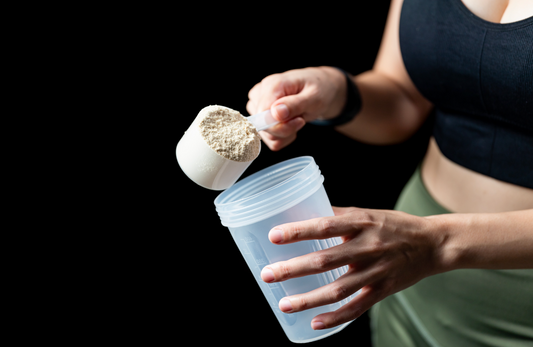As the saying goes, "More is not always better," and this holds true for protein consumption and muscle building. The idea that loading up on protein automatically translates into bigger muscles is a widespread misconception. In reality, muscle gain depends on a balance of proper nutrition, consistent exercise, adequate rest, and, yes, protein intake — but the key lies in the quantity and quality of protein, not merely the amount.
Firstly, our bodies have a limit to how much protein they can use for muscle repair and growth. Studies have indicated that, for most people, consuming more than 2 grams of protein per kilogram of lean body weight doesn't increase muscle synthesis. Exceeding this amount doesn't make your muscles grow faster but can put unnecessary strain on body processing the surplus protein.
Moreover, it's crucial to understand that protein requirements vary immensely among individuals, depending on age, gender, physical activity level, and overall health. For instance, sedentary adults need only about 0.8 grams per kilogram of lean body weight, while professional athletes may need up to 2 grams per kilogram due to increased muscle repair and synthesis demands. Amidst these varied demographic needs, advocating for high protein indiscriminately can lead to nutritional imbalances and health issues over time.
What does this mean? If you weigh 70 kilos and you are 35% body fat, this means that your lean weight is 45.5 kilos, so you’d need around 40 – 60g of protein a day, or around 15 – 20g per meal, based on 3 meals a day. As an example, the average lean 100g eye fillet steak provides around 20g of protein value.
Additionally, the common practice of chugging post-workout protein shakes and supplements is not always necessary. Natural foods consumed in scheduled meals can meet our protein requirements if the diet is well-rounded. These supplements can surge insulin levels due to their fast digestion and absorption rates. Elevated insulin may inhibit fat oxidation, which could hinder fat loss goals for many fitness enthusiasts. Plus, some protein supplements come in the form of sweetened powders and shakes, which can contribute to unwanted fat gain and a negative impact on your microbiome health. It's also important to keep in mind that if you are insulin resistant, you will have an exaggerated response to carbs AND protein.
It's important to acknowledge that while protein is unquestionably vital for muscle repair, recovery, and growth, it's merely a part of the complex nutritional and physiological puzzle. Fibrous plant foods and healthy fats, along with adequate hydration and micronutrients, play significant roles in overall health and fitness. A balanced diet ensures that your body is receiving all the necessary components for recovery, energy, and performance.
In conclusion, rather than fixating on protein quantities, we should focus on achieving a balanced diet that meets our individual protein needs along with other nutritional requirements. Exercise regimen appropriateness, variety in protein sources, portion control, and timing of intake also warrant attention for optimal muscle gain. Remember, building muscle is a gradual process that requires consistency in both nutrition and training. By understanding our bodies' unique needs and responding appropriately, we can achieve our fitness goals without falling prey to the protein overload myth.
























